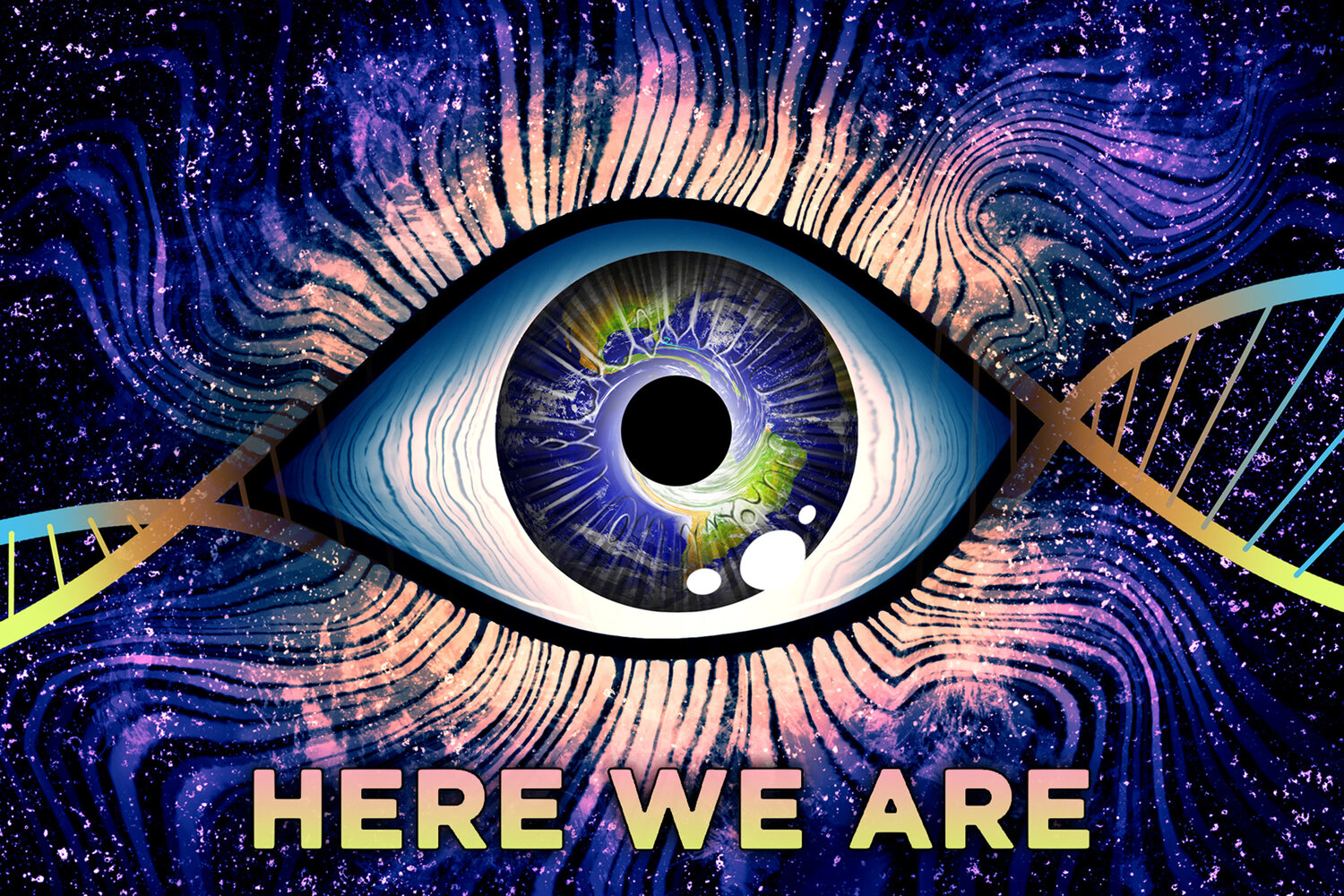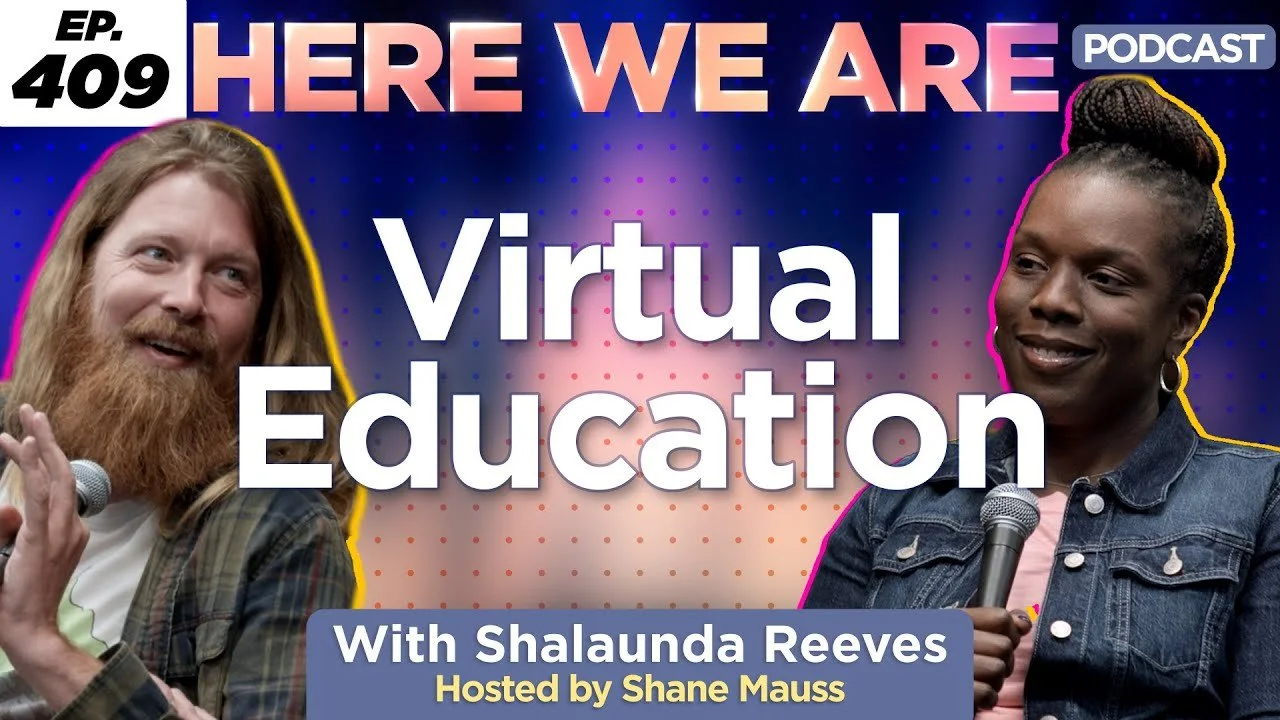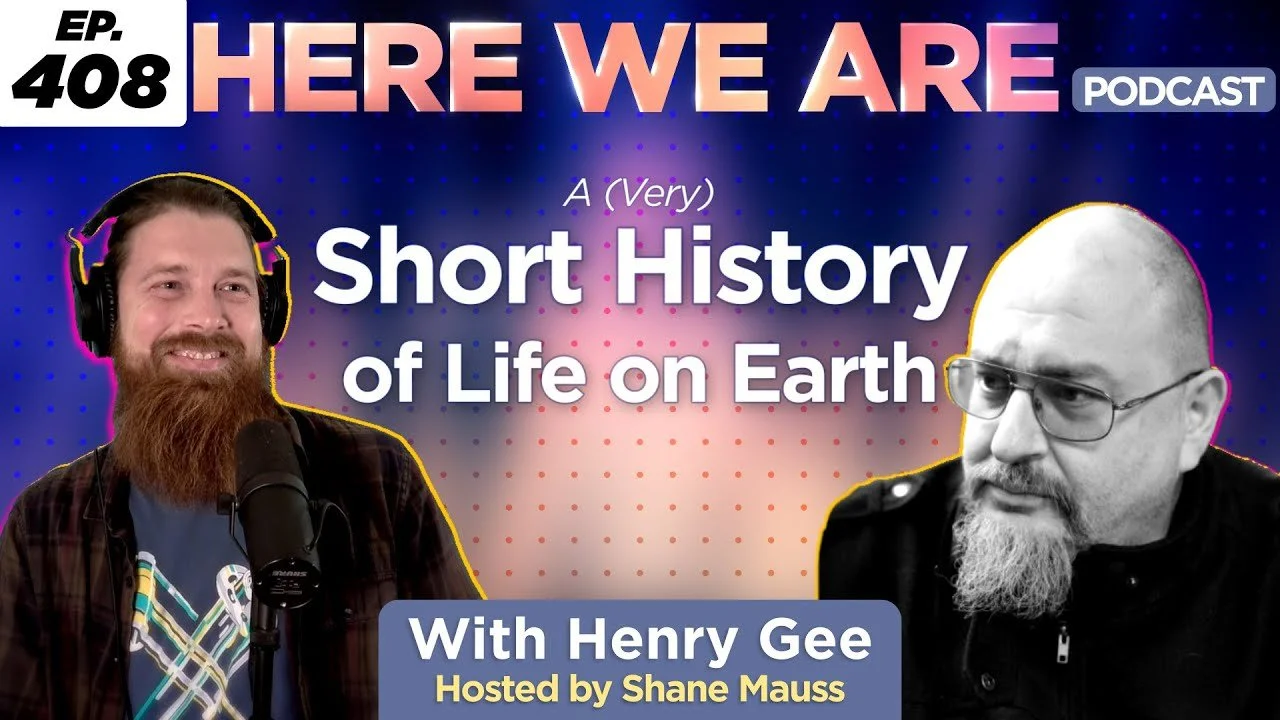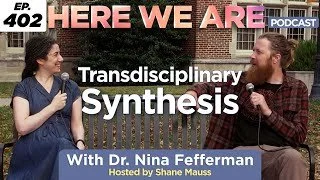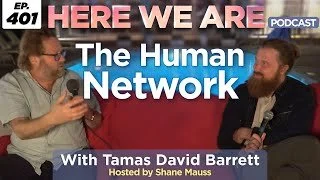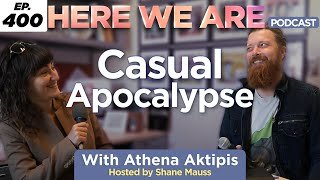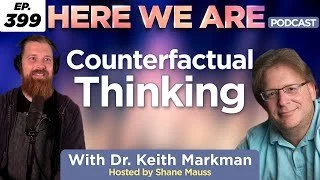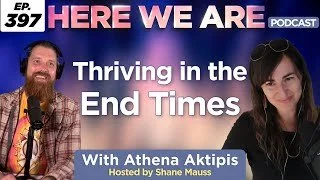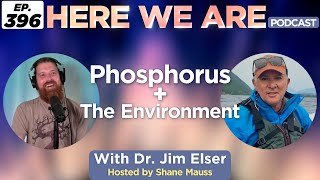Episode 410: Dung Beetles, Kimberley Sheldon
Today I'm at The University of Tennessee, Knoxville speaking with Kimberly Sheldon all about dung beetles! Kim studies the patterns and processes that determine the distribution of species and use this information to predict impacts of anthropogenic change on species and ecological communities.
Episode 409: Virtual Education, Shalaunda Reeves
Today I'm learning about virtual education and how technology is helping teach students about otherwise complex topics. Shalaunda Reeves holds a PhD in curriculum and instruction and her research interests focus on how people learn in virtual environments.
Episode 408: A (Very) Short History of Life on Earth, Henry Gee
Henry Gee is the author of ‘A (Very) Short History of Life on Earth’ - winner Royal Society Science Book Award 2022 and more notably, one of Shane's favorite books :) Henry is a paleontologist, evolutionary biologist, and editor at Nature. He is also a hilarious, charming, wonderful guy who articulates the story of our existence in a poetic and accessible way.
Episode 407: Birdsong and City Noise, Elizabeth Derryberry
Birds, animal communication, evolution, environmental pressures, and human impacts. This conversation was very much in the Here We Are wheelhouse which made for a loose, funny, and fascinating episode!
Episode 406: La Crosse Virus, Rebecca Tiffany Trout Fryxell
This week Rebecca Tiffany Trout Fryxell talks about the La Crosse Virus. What is it? What does it do? How is it treated or prevented? Humans, animals, plants, and the environment are inextricably linked, with the health of one affecting the health of all. The One Health Initiative is Uniting disciplines to protect and promote the health of all life on Earth.
Episode 405: Modeling a way out of Extinction, Paul Armsworth
Today I'm at The University of Tennessee, Knoxville speaking with Dr. Paul Armsworth.
Paul examines how conservation investment strategies and natural resource management policies can be made more effective by integrating ecological and socioeconomic models and data.
Episode 404: Modern Humans, David and Douglas Kenrick
Today I'm speaking with David and Douglas Kenrick about their new book "Solving Modern Problems With a Stone-Age Brain: Human Evolution and the Seven Fundamental Motives".
Douglas Kenrick is a professor of psychology at Arizona State University. His research and writing integrate three scientific syntheses of the last few decades: evolutionary psychology, cognitive science, and dynamical systems theory. He is the author of over 170 scientific articles, books, and book chapters, the majority applying evolutionary ideas to human cognition and behavior.
David Lundberg-Kenrick is the Media Outreach Program Manager at Arizona State University. He creates multimedia supplements for psychology textbooks, produced and edited videos for use in psychology experiments, and worked on documentaries about evolutionary psychology, including the BBC’s “The Science of Seduction” and his current project “The Caveman Goes to Hollywood.”
Episode 403: Horticultural Therapy, Derrick Stowell
Today I'm at the University of Tennessee in Knoxville speaking with Dr. Derrick Stowell, who is the Education and Horticultural Therapy Program Administrator for the UT Gardens. Derrick is responsible for directing education programs and horticultural therapy programs for the UT Gardens, Knoxville location.
Episode 402: Transdisciplinary Synthesis, Nina Fefferman
Nina Fefferman is back! Today, I'm at the University of Tennessee in Knoxville. We talk about beauty and utility of math and how to get young learners excited about mathematic reasoning. We also discuss the incredible collaborative work being done at NIMBioS, which is a National Science Foundation (NSF) Synthesis Center supported through NSF's Biological Sciences Directorate via a Cooperative Agreement with the University of Tennessee.
Episode 401: The Human Network, Tamas David Barrett
Today I'm speaking with evolutionary behavioural scientist, Tamas David Barrett. His work focuses on how the structure of social networks change during falling fertility, urbanisation, and migration; as well as, how social networks vary over the human life-course. Tamás’s current projects include the origins of inequality regulation; why the behavioural rules between women and men vary so much across cultures; and the evolutionary foundations of sharing behaviour.
Tamás teaches Trinity College, University of Oxford in the United Kingdom, and is affiliated with the Population Studies Research Institute in Helsinki, Finland. He is a fellow of the Royal Anthropological Institute.
Episode 400: Casual Apocalypse, Athena Aktipis
This week I went Arizona State University to talk with Athena Aktipis about the potential of apocalyptic events, both natural and human-caused, and how we can prepare, respond, and prevent the end of the world.
Athena is an Associate Professor in the Department of Psychology at Arizona State University and co-Director of The Cooperation Science Network and The Human Generosity Project.
This episode is a part of a new series we're working on where we present ideas from scientists in a more structured format. We're still fine-tuning the way this will work, so make sure and join the brainstorm over on my Discord.
Episode 399: Counterfactual Thinking, Keith Markman
Today I'm hanging out with Dr. Keith Markman! Keith was one of the scientists that gave a talk at this year's Mind Under Matter Campout Festival. Keith's research focuses on “counterfactual thinking”, or how people imagine alternative realities, develop conspiracy theories, and connect coincidental dots dreamt up by the hyper-active human brain.
Episode 398: The Truth About The Middle Ages, Daniele Cybulskie
Today I'm speaking with Daniele Cybulskie, who is a historian, writer, and podcaster. Daniele has written several books about medieval history, which you can find here: http://www.danielecybulskie.com/books
She is also the host of The Medieval Podcast: https://podcasts.apple.com/us/podcast/the-medieval-podcast/id1448142533
Episode 397: Thriving in the End Times, Athena Aktipis
This week I'm talking with Athena Aktipis about the gradients of apocalyptic events and how humans cope with the end times.
Athena is an Associate Professor in the Department of Psychology at Arizona State University and co-Director of The Cooperation Science Network and The Human Generosity Project.
This episode is a part of a new series we're working on where we present ideas from scientists in a more structured format. We're still fine-tuning the way this will work, so make sure and join the brainstorm over on my Discord.
Episode 396: Phosphorus and The Environment, Jim Elser
Today we're talking phosphorus, from exploding stars to urine. Dr. Jim Elser is a limnologist, Director of Flathead Lake Biological Station at Yellow Bay, Bierman Professor of Ecology at the University of Montana, and the Director of Sustainable Phosphorus Alliance.
Phosphorus is as essential as water, carbon, or oxygen for agriculture and all life on earth. It's also a non-renewable resource with a natural cycle, which is rapidly accelerating due to human activity. But there are promising innovations in the works that can help offset our influence and solve our phosphorus inefficiencies.
Episode 395: LIVE with Herman Pontzer
This episode of the Here We Are podcast was recorded live at the Mind Under Matter Campout Festival in Raleigh, NC at the beautiful Lakeside Retreats. I decided to invite one of my favorite guests and good friend, Herman Pontzer, to talk about some of the evolutionary underpinnings of why we come together and celebrate at festivals.
Episode 394: Humility, Daryl R. Van Tongeren
Today I'm speaking with Daryl R. Van Tongeren, who is an associate professor of psychology at Hope College. We discuss some of the topics he writes about in his new book, "Humble: Free Yourself From the Traps of a Narcissistic World."
Episode 393: Human Productivity, Tara Behrend
Today I'm speaking with Tara Behrend, who is an Assoc of Industrial-Organizational Psychology at Purdue University. We discuss productivity and efficiency in the work place, our cultural perception of time, the surprising and counterintuitive findings about employee privacy research, and online education and more!
Episode 392: Happier Hour, Cassie Holmes
This week I'm speaking with Cassie Holmes, professor at UCLA’s Anderson School of Management. We talk about her new book "Happier Hour: How to Beat Distraction, Expand Your Time, and Focus on What Matters Most" How can we use our time more wisely and accomplish the tasks we care about most? What's the difference between pickleball and tennis? Why is it easier to brainstorm in the shower or while driving across the country? Is multitasking a myth?
Episode 391: Human Factors, Anne McLaughlin
Today I am speaking with Anne McLaughlin, who is a psychology professor at North Carolina State University. We discuss her book "All Too Human", which takes a look at applied Human Factors. Human Factors may be a lesser known field within psychology but its implications become obvious once realized.
Please note that we are currently in the process of migrating the full Here We Are episode archive from a previous platform. All episodes will be available on our website in the near future.
